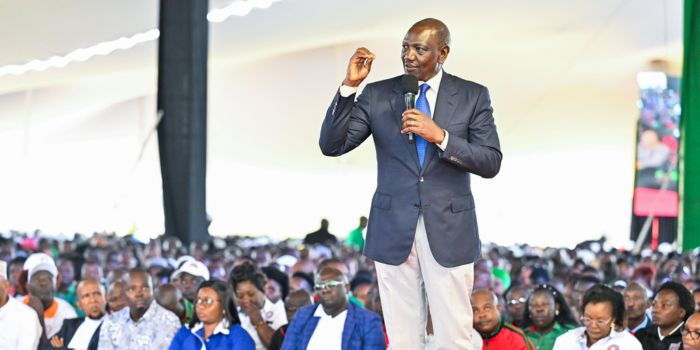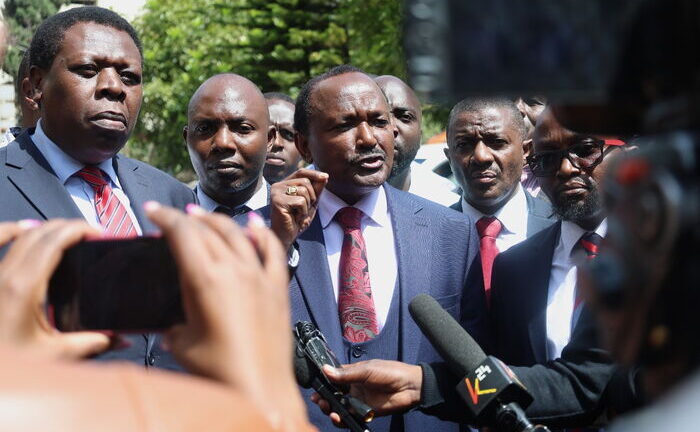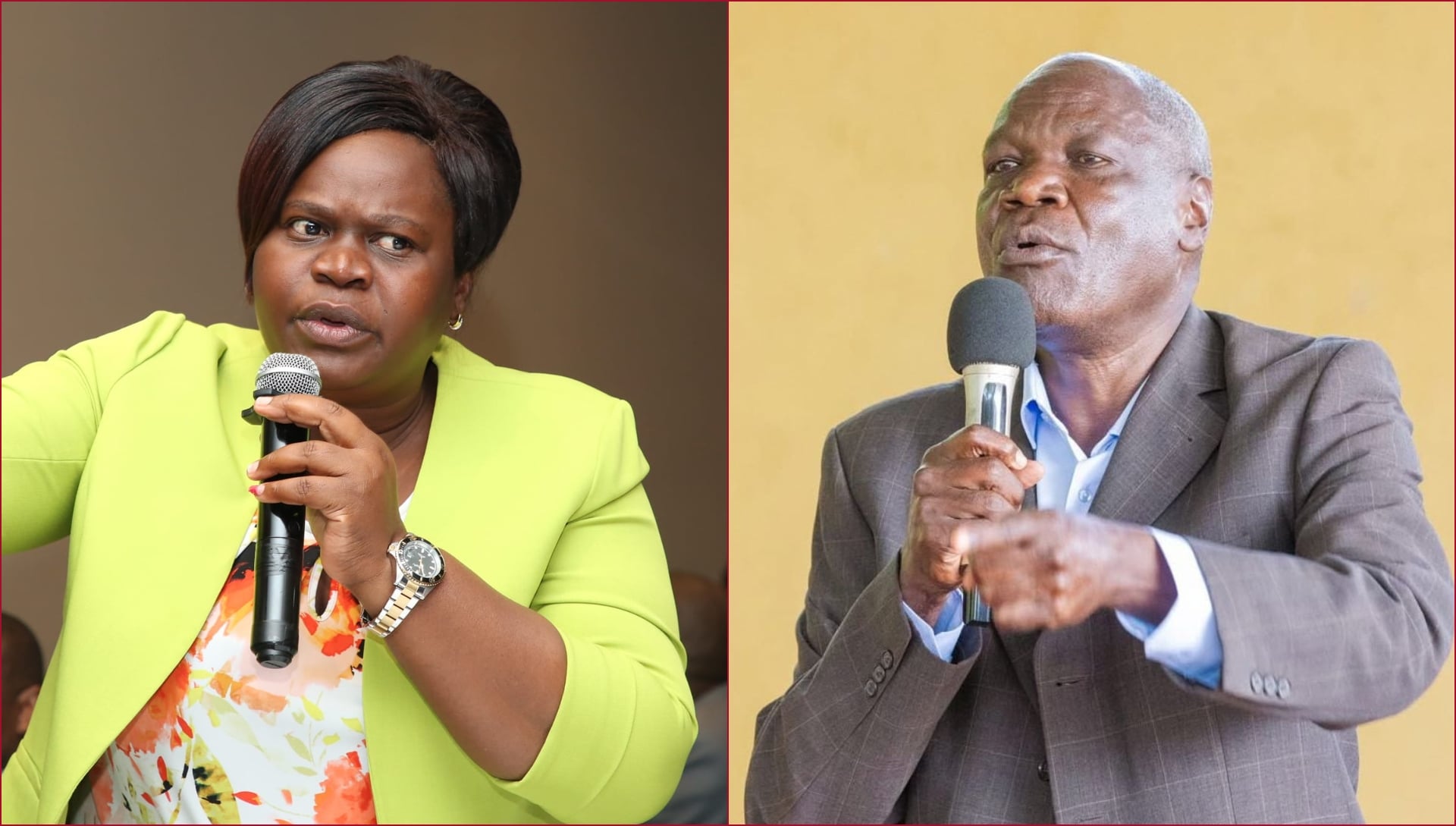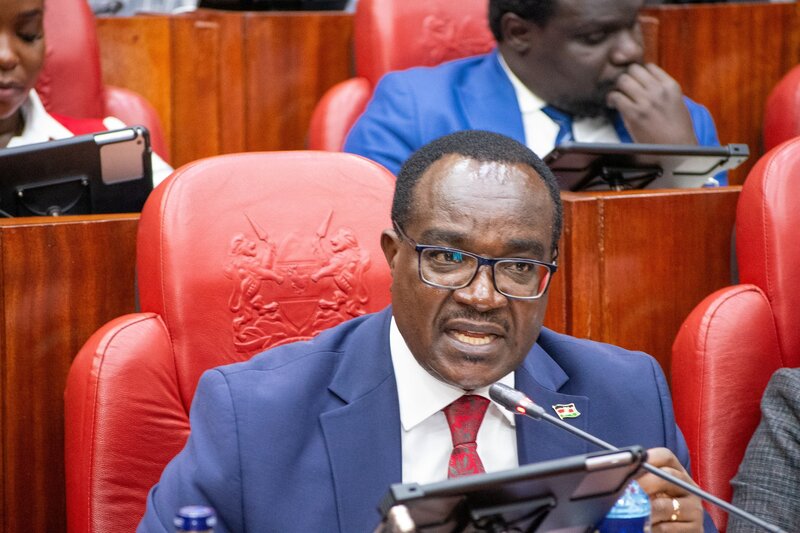
A political and financial earthquake struck the Ministry of Education today as lawmakers uncovered that Sh1.3 billion allocated to school infrastructure was funneled into non-existent institutions.
Education Cabinet Secretary Julius Ogamba faced searing questioning during a parliamentary committee hearing on what MPs termed a massive fraud within the ministry.According to detailed evidence submitted by legislators, funds meant for real public schools were diverted to “ghost schools”—institutions that exist only on paper.
Among the list presented were two completely fictitious schools, Bomet High School and Kamuret Secondary School, each allegedly receiving KSh50 million. Two others, Olbutyo Boys and Olbutyo Girls Secondary Schools, were flagged for odd duplication in the same vicinity, raising glaring questions about fairness and oversight.
MPs accused unnamed ministry insiders of manipulating the approved list, inserting phantom schools while sidelining genuine ones. “We found names of institutions never vetted by this House receiving millions,” declared a furious Luanda MP. “How do ghost schools qualify over actual ones?
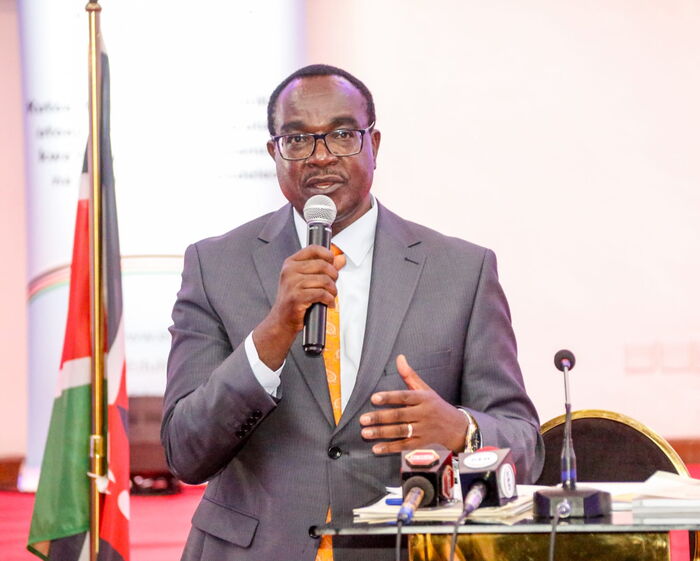
“The scandal has exposed deeper fractures. Critics warned there’s likely a cartel operating within the ministry, exploiting infrastructure funding channels to siphon public resources, while deserving schools struggle to fund even basic needs.
Kitutu Masaba MP Clive Gisairo called for an independent probe and said that if this is happening openly with infrastructure funds, capitation allocations might be worse.Faced with intense scrutiny, CS Ogamba pledged transparent action.
He committed to publishing the full list of funded schools and launching verification visits to confirm physical existence. “If they cannot be verified, we will reclaim the funds,” he stated firmly.
This scandal has thrust Ogamba into the eye of a brewing storm—he is expected to lead efforts to restore trust in education funding, while MPs demand legal consequences for those behind the manipulation.
Meanwhile, the broader education sector faces mounting pressure. Capitation funding delays have left schools underfunded, with many institutions reporting shockingly low disbursements—some as little as KSh87—despite government pledges.
Budget constraints have led to drastic reductions in per-student funding, fueling operational chaos.In the wake of this unfolding scandal, stakeholders are calling for:An urgent forensic audit of all education infrastructure and capitation disbursements.
Suspension of officials implicated until investigations conclude.Legislative reforms to strengthen oversight and eliminate loopholes enabling corruption.The fallout from this episode may eclipse mere financial loss—it threatens to erode public confidence in foundational education institutions.
As the investigation proceeds, Ogamba and his ministry face a pivotal test: will they act decisively to cleanse the sector, or will the scandal deepen Kenya’s education crisis?


